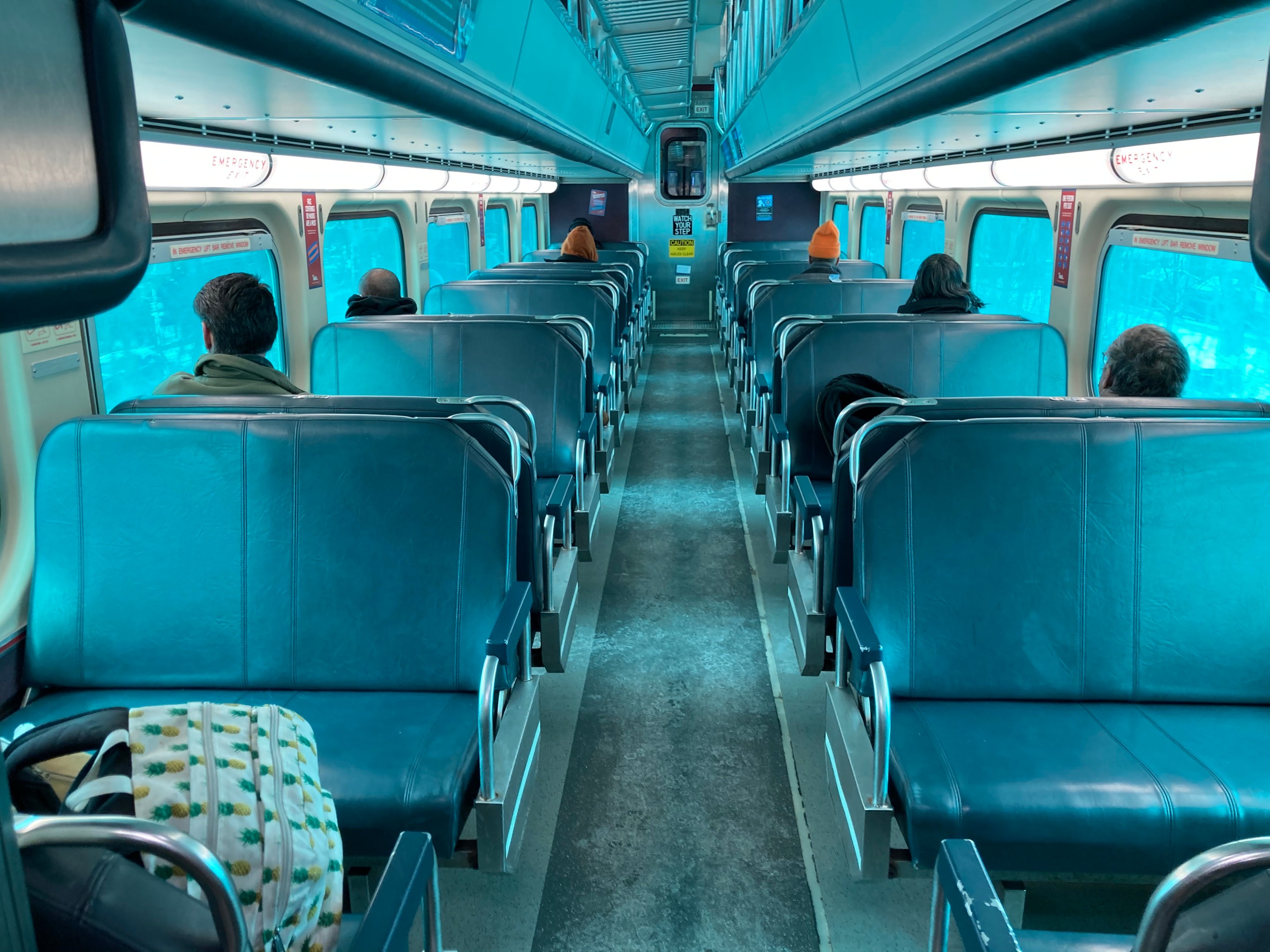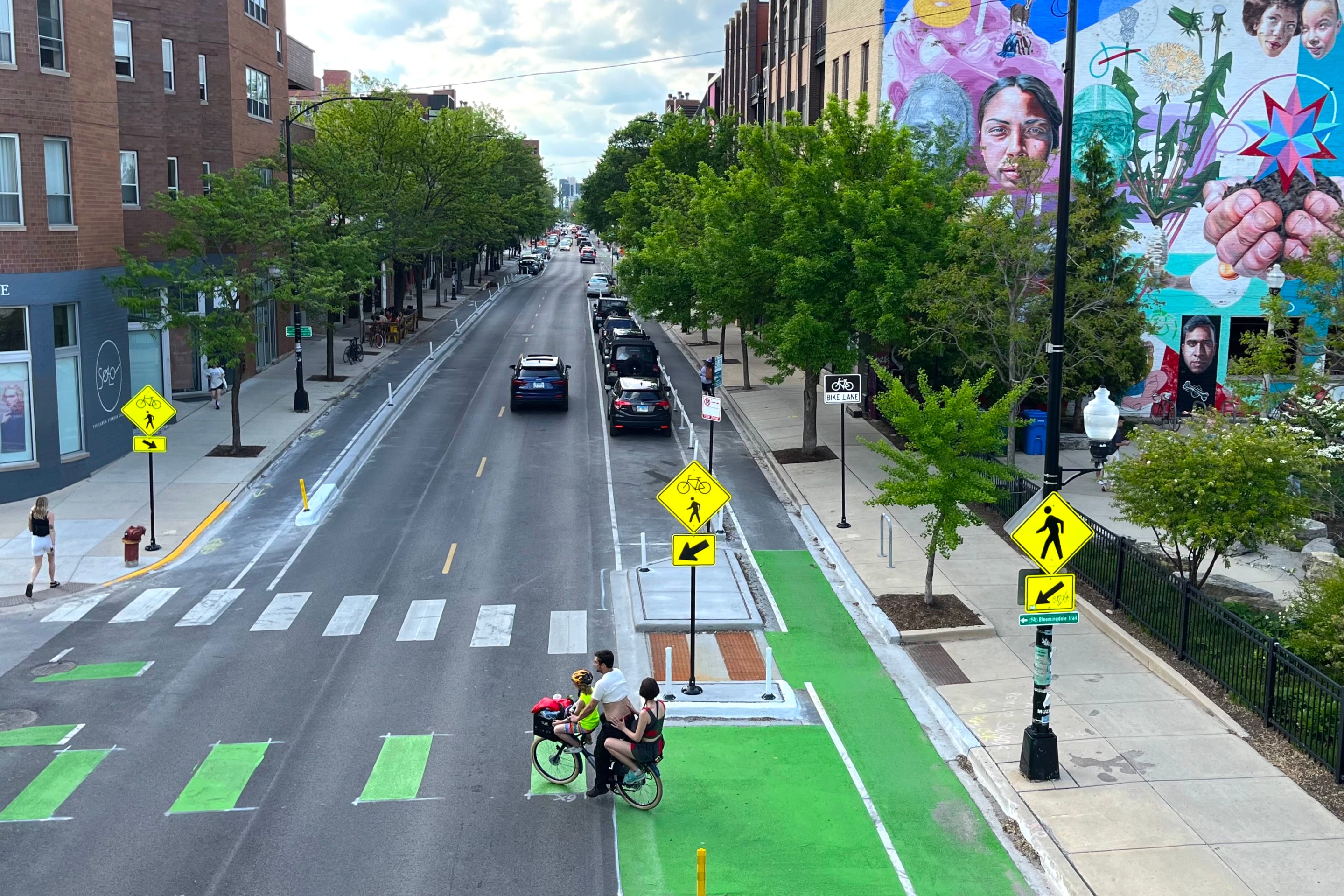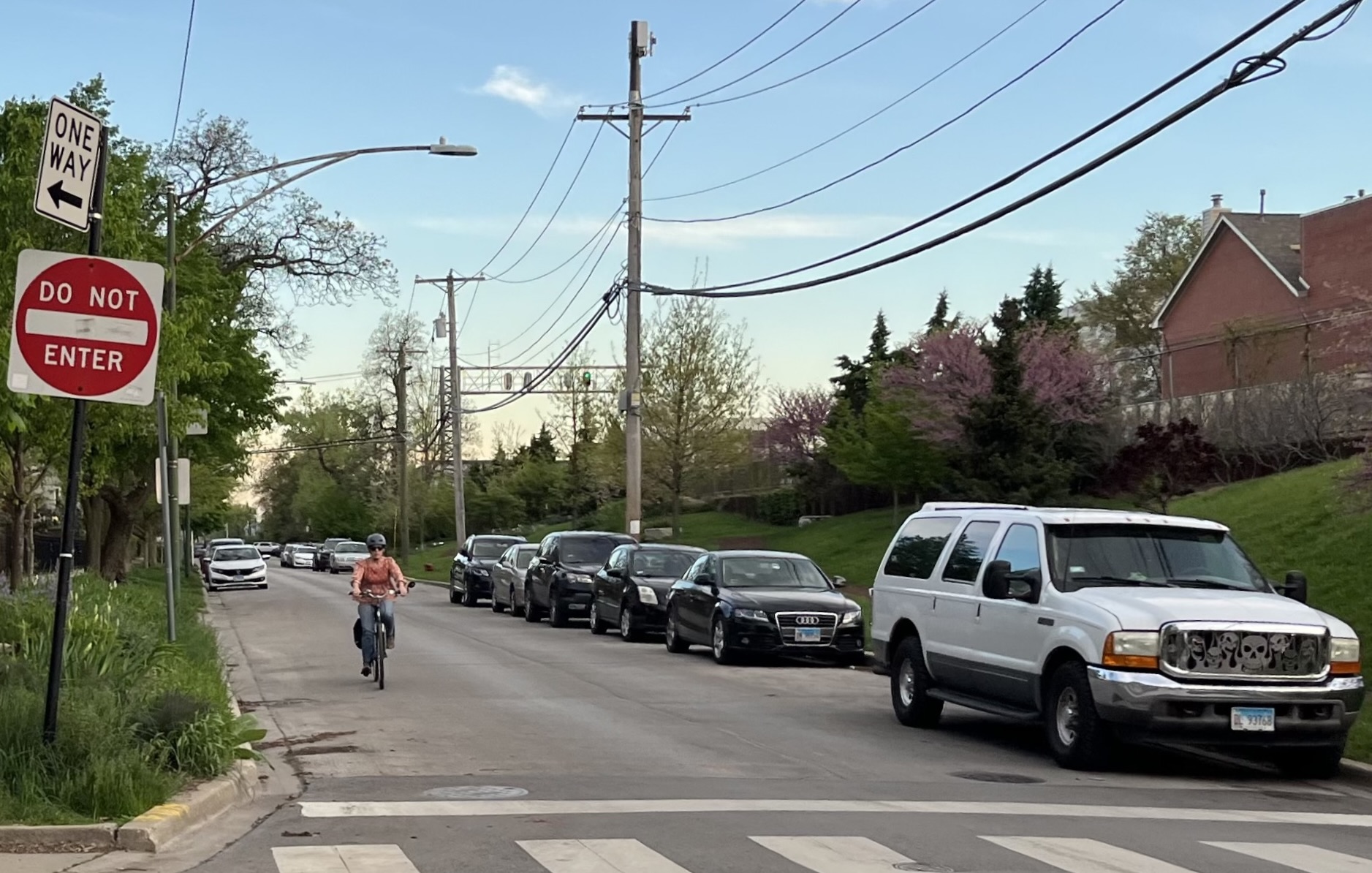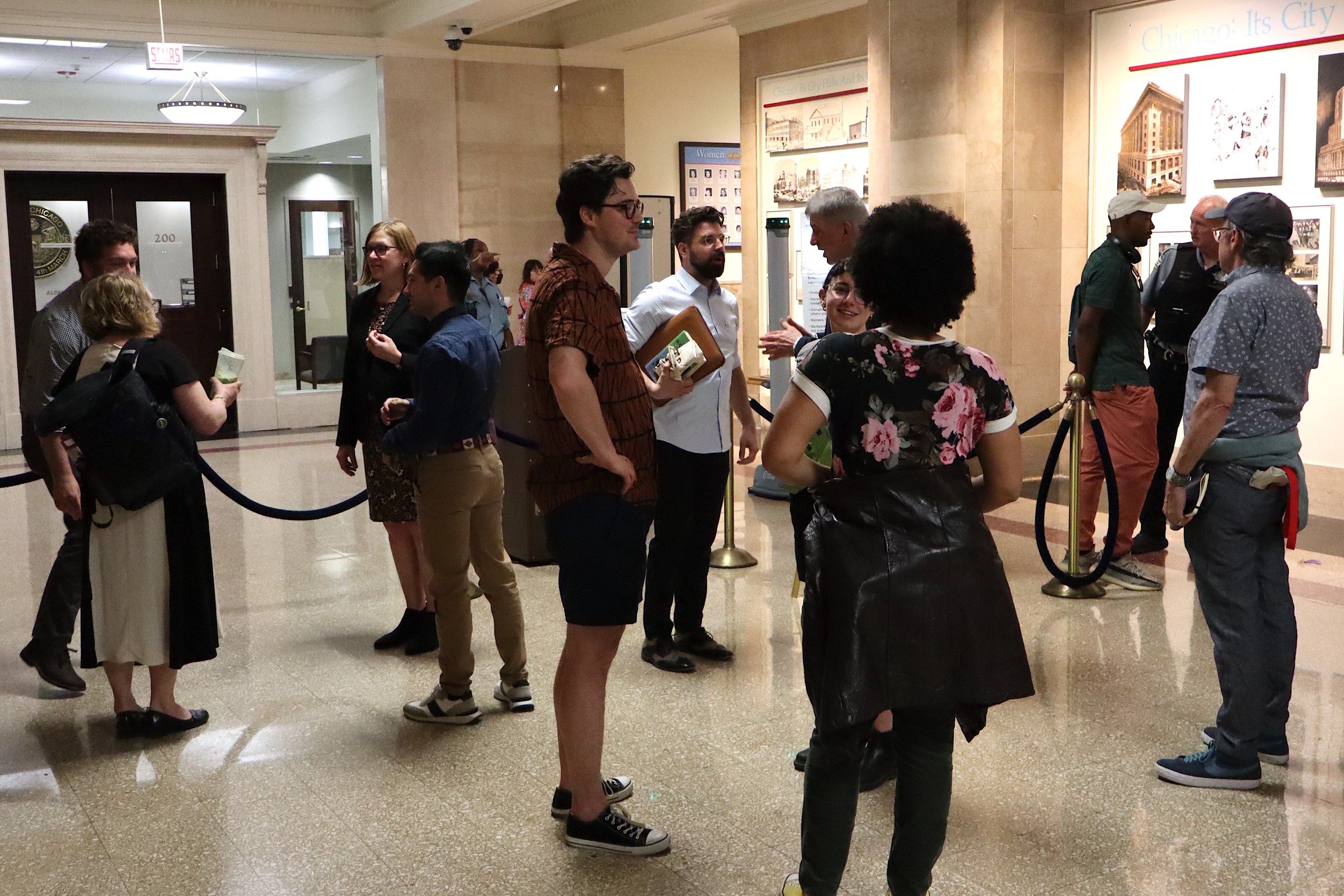Just when I was starting to wonder if Union Pacific Railroad was ever going to return to collecting fares on the the three commuter rail lines it operates for Metra, today both entities confirmed that conductors will begin checking tickets on those lines again starting on Tuesday, June 1.
Union Pacific has a longstanding agreement with Metra to operate its UP North, Northwest, and West lines, the routes that terminate at the downtown Ogilvie Transportation Center, and whose tracks UP owns. During the COVID-19 pandemic, Union Pacific has been citing the coronavirus as an reason to not to have conductors collect fares from customers on the three lines, or even walk through the rail cars, although conductors on other Metra-run lines have been doing so for many months. Metra has said UP’s failure to collect fares is costing Metra $1 million a month.
Some riders have complained that the lack of conductors and fare collection on the UP lines has led to somewhat wild-west conditions on Metra, including lack of compliance with mask rules, suspected gang activity, and even a report of someone urinating in a train vestibule. "We have received many complaints from customers who feel the absence of conductors on Union Pacific trains has resulted in behavior from other passengers that would not otherwise be allowed or tolerated," Metra spokesman Michael Gillis told me in late January.
When I rode the UP-North line at that time, I didn't notice much out of the ordinary, other than a couple of a couple of people traveling with bedrolls who appeared to be unhoused, although they weren’t breaking any rules or causing any problems for fellow riders.
A railroad industry insider told Streetsblog Chicago that Union Pacific's recalcitrance is actually a symptom of its longstanding feud with Metra, a strategy to “bleed Metra dry” in order to pressure the transit agency to pay UP to take over operations for the three lines.
Union Pacific filed a lawsuit to try to force a deal in December 2019, and Metra sued last summer in an effort to move the dispute from federal court to the U.S. Surface Transportation Board. In October 2020 Metra ratcheted the conflict up another notch with a new lawsuit accusing Union Pacific of breach of contract, arguing that UP is guilty of “severely damaging Metra’s bottom line, reputation and customer experience by an ‘arbitrary and capricious’ refusal” to have conductors collect fares and complete other onboard tasks.
The fact that Union Pacific is finally budging on the fare collection issue may be a sign that the two entities may be on the road to settling their differences. I first heard the news from transit blackbelt Katherine Hodges, who has ridden every Metra line to its endpoint.
Michael Gillis confirmed the info, but declined to discuss why Union Pacific agreed to collect fares again. "That’s something you should let UP explain."
"Union Pacific employees have been working in the train throughout the pandemic," UP spokesperson Robynn Tysver told me. "Due to vaccine availability, we believe now is the appropriate time to resume pre-pandemic onboard fare collections, effective June 1. Our employees will continue to wear masks and follow CDC and Illinois Department of Public Health guidelines."
"We've notified employees of our plans, and we continue to provide them with information on how and where they can receive vaccinations before June 1," Tysver added. "Safety is our highest priority, and we strongly urge all of our employees to be vaccinated."
Was it really pandemic fears that motivated Union Pacific to refuse to have its conductors collect fares until long after conductors on Metra-controlled lines went back to walking the trains? Or rather was it a desire to force Metra to the bargaining table? We may never know for sure, but at least this change will help stop the commuter railroad from hemorrhaging money.




